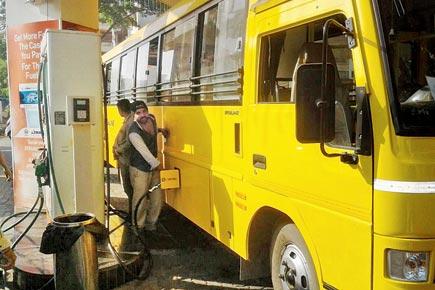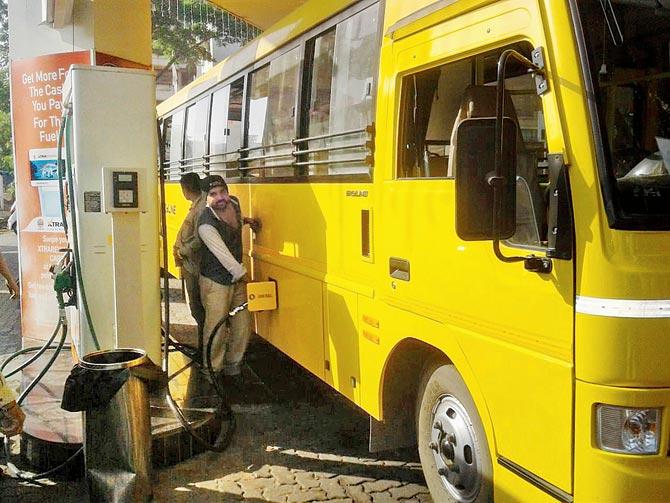Following a meeting with the transport department, school bus operators get extended withdrawal limits of Rs 50,000 to continue running operations smoothly


The school bus operators had complained about running out of funds to keep the buses on the road
ADVERTISEMENT
All it took for the school bus operators to keep the wheels rolling was a day of hard posturing. As soon as it was reported that they may have to temporarily halt services due to the ongoing #cashcrush, they were granted permission to withdraw Rs 50,000 per week as opposed to the permitted Rs 24,000. Additionally, petrol pumps were also directed to accept cheques and old currency from the bus operators till November 24. To that end, the School Bus Operators Association (SBOA) announced that the buses would continue to ply.
Immediate action
On Sunday, SBOA had announced that due to the Rs 20,000 limit, they might not be able to ply buses Wednesday onwards as their day-to-day expenditure couldn’t be met. Following that, a meeting with the transport commissioner was scheduled on Monday to work out a plan of action. Anil Garg, president of SBOA, said, “After the talk with the transport department, we feel our voice has been heard. Understanding our concerns, the government has extended our withdrawal limit to Rs 50,000 per week. Petrol pumps are also going to be instructed to accept cheques and old currency till November 24. This definitely helps us sorting the issue, so we will continue the services.”
Parents relieved
Arundhati Chavan, president of Parents Teachers Association, said, “Thankfully, the SBOA decided to discuss with authorities before implementing their decision. As expected, they arrived at a solution. There was no point in holding the children’s convenience to ransom.”
Sushma Raje, a parent, said, “I am relieved. It would have had been difficult to manage the day otherwise.”
Teachers, though relieved, were skeptical of the issue to begin with. Uday Nare, spokesperson for Shikshak Bharati and a teacher with the Hansraj Morarji Public School, said, “The panic was created unnecessarily. There were alternative methods available such as card payments and online transactions.”
 Subscribe today by clicking the link and stay updated with the latest news!" Click here!
Subscribe today by clicking the link and stay updated with the latest news!" Click here!






